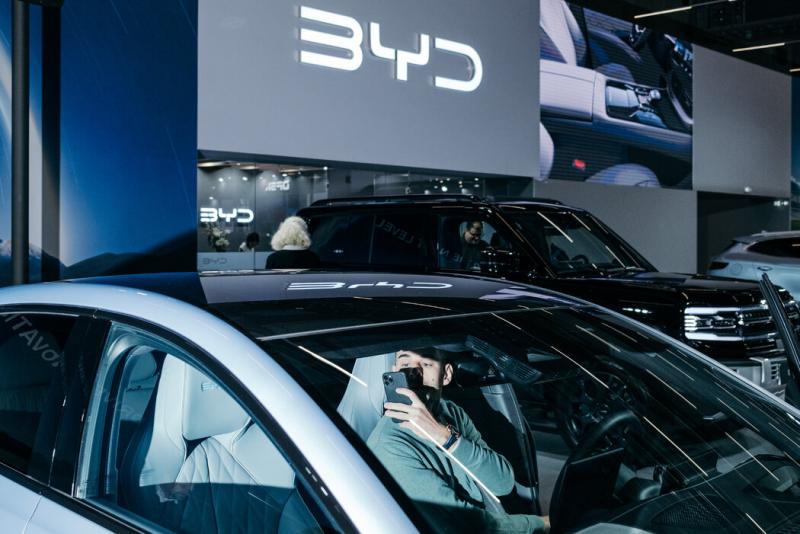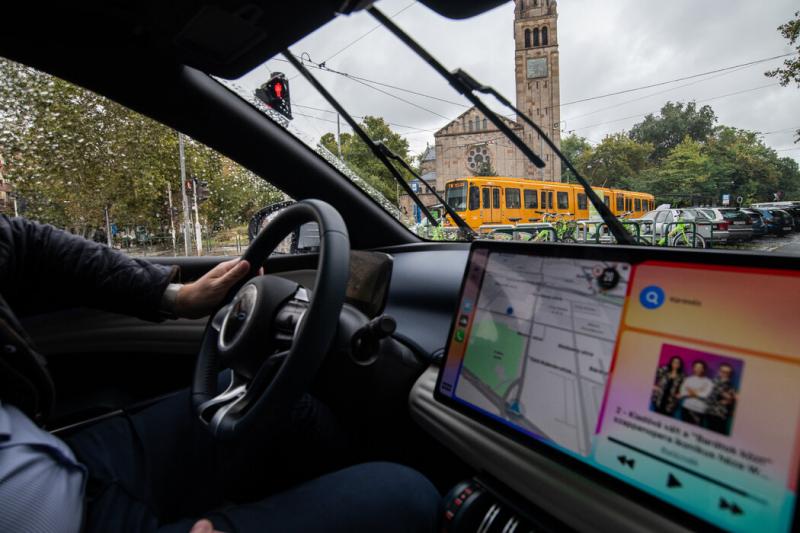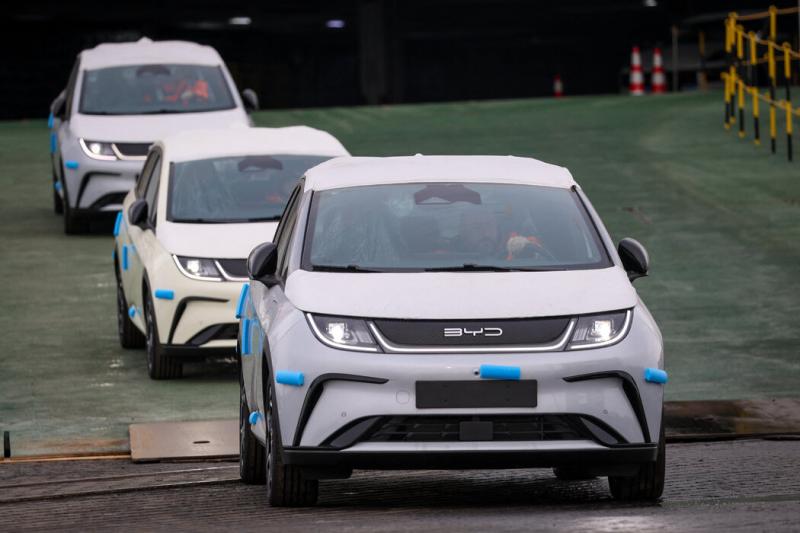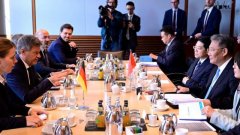
The shaded Hungarian city of Cegder has a wide avenue and a respected university., Not the location of the future of European cars.
But there are about 300 hectares of construction sites that covers an area of about 300 hectares. The excavator has begun to prepare for China's leading car manufacturer BYD in Europe's first assembly plant.Large concrete pipelines and piles of metal plates are ready, and the foundation will be laid down this fall.
The timing is very important.The European Union is preparing to decide whether to raise tariffs on electric vehicles entering the European Union from China by October 30.These tariffs are raised on the basis of the current 10%tariffs, and the tax rate ranges from 9%to 35.3%, with a validity period of five years.This is far lower than 100%of the 100%tariffs levied by the United States and Canada, but when they introduced, Chinese auto manufacturers are anxious to enter the European market.
BYD has always sought to improve its popularity in Europe. It cooperates with dealers in 19 countries to provide electric and hybrid models, and sponsor the European Football Championship this summer.
"They have a very ambitious plan," Najib Sander, the deputy mayor in charge of the development of Siegder's city, said when he talked about the BYD factory planned to be put into production next year."Tariffs are obviously a strong motivation."
Other Chinese auto manufacturers are also looking for methods to avoid tariffs. They are eager to convince Europeans that their cars are great, and they are more affordable than models produced by European companies.

Chinese auto manufacturer Chery announced in April this year that it will cooperate with Erbro Electric Motor Corporation to start producing electric vehicles in Barcelona.European brands under Standeis include Peugeot, Fiat and Obress.The company announced in May this year that it will establish a cooperative relationship with China's zero -run cars and start to produce electric vehicles in Europe this fall.
Zhejiang Geely Holding Group, which acquired Swedish auto manufacturer Volvo Motors in 2010, also sought possible production bases in Europe.The company's Gexing Company is headquartered in Sweden, but produced in China.Earlier this year, the company began to produce SUVs in a factory in South Carolina, which will also be used to supply the European market.
When these companies enter Europe, the review of tariffs has entered the last few weeks.Chinese Minister of Commerce Wang Wentao is visiting the capital of European countries and will meet with EU trademark Valatus East Broschis on Thursday.
EU officials are worried that China will pose a threat to the automotive industry in Europe, while the European automotive industry accounts for nearly 7%of the regional economy output.They said that they did not provide a solution to fully solve their concerns, that is, the government's support has enabled Chinese automakers to gain an unfair advantage relative to European counterparts.
Analysts believe that the transfer of production to the place closer to the market is beneficial to both parties: the European automobile industry will obtain employment opportunities and cut cutting -edge technologies. Chinese manufacturers will save tariffs and transportation costs.
Jacob Cock Karde, a senior researcher at Peterson Institute of International Economics, said, "I think, from the perspective of profitability, it is believed that Chinese factories can supply the global automotive market. From the corporate level, it isNonsense "
By 2023, Chinese brands account for 3.7%of European electric vehicles, while the market share of four years ago was 0.4%.This figure is expected to rise in the next five years.

In July this year, Turkey announced that BYD will establish a assembly plant in the country and start production of battery drivers and hybrid vehicles in 2026.Türkiye is not a member of the European Union, but the trade agreement means that the car produced there is not affected by tariffs.
In Siegd, BYD's goal is to increase production in the next few years and create thousands of new jobs.Although the recent demand has declined, this speed is part of BYD's efforts to enter the European market.
The company has worked hard to make a good reputation in Europe and establish a cooperative relationship with dealers.At the European Football Championships held in Germany, BYD showed its own car at the fans of 10 different cities. During the entire game, BYD's logo has always flashed on the field billboards.
Germany is the largest economy in Europe and the largest automotive market in Europe.But in China, it also has a special reputation.The top German car manufacturers-Volkswagen, BMW and Mercedes-Benz-in the early 1990s, they established joint ventures with Chinese companies to help China develop the automotive industry.
But German consumers are traditionally conservative and have high loyalty to their brand.Berlin suddenly decided to reduce subsidies for purchasing electric vehicles, which led to a decrease of nearly 37%compared with the same period last year in the year of July this year.
This does not prevent Chinese auto manufacturers from trying to get a foothold.Last week, several Chinese auto manufacturers showed their latest models at a exhibition usually based on car companies in Frankfurt.
"Even if some people in Europe oppose us, we will never oppose the European market," Yang Xueliang, senior vice president of Geely, told reporters at the exhibition.
It's not just car manufacturers who are interested in Europe.Martin Alt, the director of China -Europe and Eastern European investors' relationship between Logistics and Industrial Real Estate CTP, said that in the past few years, more and more Chinese suppliers have come here to be closer to the assembly factories of their products.
He said that BMW and other auto manufacturers who rely on Chinese companies to produce parts of Chinese companies are worried about the cost and risk of transporting goods overseas, hoping to make their supply chain more economical and safer.
"So they said,‘ If you want to produce products for our European market, you have to be in Europe, ’" Alt said.He said that the combination of skilled workers with low wages and unsmodified land has made Central European and Eastern European countries particularly attractive.
The Hungarian government led by Olban Victor has promised to adopt incentive measures to support the project, but has not disclosed the specific amount.BYD did not respond to the request of the comment.
Some analysts believe that the current situation in Europe is similar to the US government's approach to Toyota and Honda.In the 1980s, these two Japanese brands invested in the United States.
However, although there are various attempts to transform the cooperative relationship into competitive relationships, China is still the second largest trading partner in Europe, second only to the United States, and the bilateral trade volume in 2023 is 739 billion euros (about 814 billion U.S. dollars).
Kirka Garde of Peterson International Economic Research Institute said, "All these factors are added together to form an overall political situation -national security -oriented American approach is definitely not desirable in Europe."
In particular in Germany, German auto manufacturers have invested a lot in China. Because they are worried about endangering interests in China, they oppose tariffs.
During the visit to China last week, European second -largest automotive production country Spain Prime Minister Pedro Sanchez urged Brussels to re -consider its position, saying that the tariffs were harmful.
"We don't need another war, I mean a trade war," Sanchez said."I think we need to start a bridge between the European Union and China."




